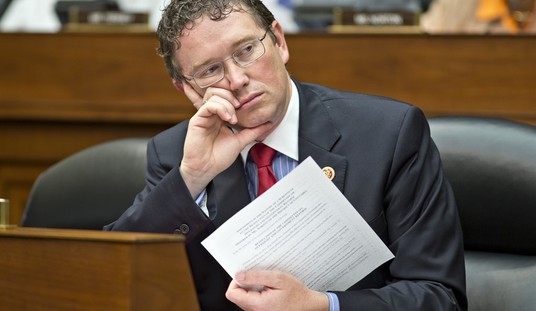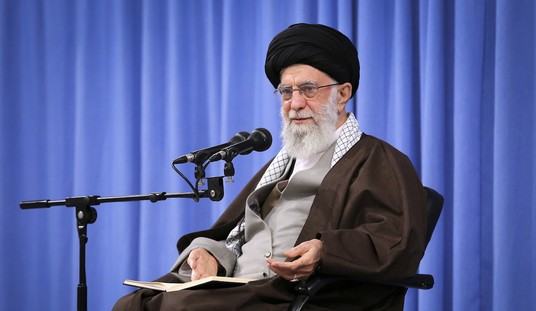Noteworthy for three reasons. One: The judge is a Bush 41 appointee, nominated to the federal bench by, er, Mitch McConnell. Two: This decision doesn’t matter much on the ground because the Sixth Circuit, the federal appellate court with jurisdiction in Kentucky, is set to hear arguments on gay marriage on August 6th. They’re going to end up superseding this decision one way or the other in the next few months anyway.
Three: Heyburn, the judge, went out of his way to make clear that he thinks this issue is a no-brainer. Usually when a court examines the constitutionality of SSM, they analyze it as both a due process matter and an equal protection matter. The due process analysis depends on whether the right to marry is “fundamental;” if it is, then the court applies “strict scrutiny” in considering the state’s ban. That mean the state needs to offer a “compelling” reason for why the ban should be upheld. Strict scrutiny is the most skeptical approach a court can take to a statute. Heyburn, though, sidesteps the due process issue altogether by noting that Justice Kennedy, in his hugely influential Windsor opinion, never squarely addresses that issue. If Kennedy hasn’t touched it, Heyburn’s not touching it either. Right off the bat, he’s disarmed himself of one of the judiciary’s favorite weapons in striking down gay-marriage bans.
That leaves the equal protection argument. Courts will apply some form of heightened scrutiny, i.e. extra skepticism, to a law that discriminates against certain historically persecuted groups. Do gays qualify as one of those groups? Sort of, says Heyburn — but it really doesn’t matter, because gay-marriage bans don’t make sense even if you’re analyzing them with no extra skepticism at all. In other words, even if you give the state legislature the maximum amount of deference due under equal protection law, an SSM ban is DOA in court. Here’s Heyburn on the state’s chief argument, that marriage is reserved for straights in the name of encouraging procreation and economic replenishment of the population:
These arguments are not those of serious people. Though it seems almost unnecessary to explain, here are the reasons why. Even assuming the state has a legitimate interest in promoting procreation, the Court fails to see, and Defendant never explains, how the exclusion of same-sex couples from marriage has any effect whatsoever on procreation among heterosexual spouses. Excluding same-sex couples from marriage does not change the number of heterosexual couples who choose to get married, the number who choose to have children, or the number of children they have…
The state’s attempts to connect the exclusion of same-sex couples from marriage to its interest in economic stability and in “ensuring humanity’s continued existence” are at best illogical and even bewildering.
He’s laughing them out of court. And then the big-picture coup de grace:
Those opposed by and large simply believe that the state has the right to adopt a particular religious or traditional view of marriage regardless of how it may affect gay and lesbian persons. But, as this Court has respectfully explained, in America even sincere and long-held religious views do not trump the constitutional rights of those who happen to have been out-voted…
Sometimes, by upholding equal rights for a few, courts necessarily must require others to forebear some prior conduct or restrain some personal instinct. Here, that would not seem to be the case. Assuring equal protection for same-sex couples does not diminish the freedom of others to any degree. Thus, same-sex couples’ right to marry
seems to be a uniquely “free” constitutional right. Hopefully, even those opposed to or uncertain about same-sex marriage will see it that way in the future.
We’ve gone from this issue being a fringe preoccupation of the left 20 years ago to the federal bench slam-dunking it today, thanks in large part to Kennedy and Windsor. As noted, next month the Sixth Circuit will decide the fate of gay marriage in Tennessee, Ohio, Michigan, and Kentucky. All four states have lower-court rulings on legalized gay marriage currently pending. All four ruled in favor of legalized SSM.








Join the conversation as a VIP Member